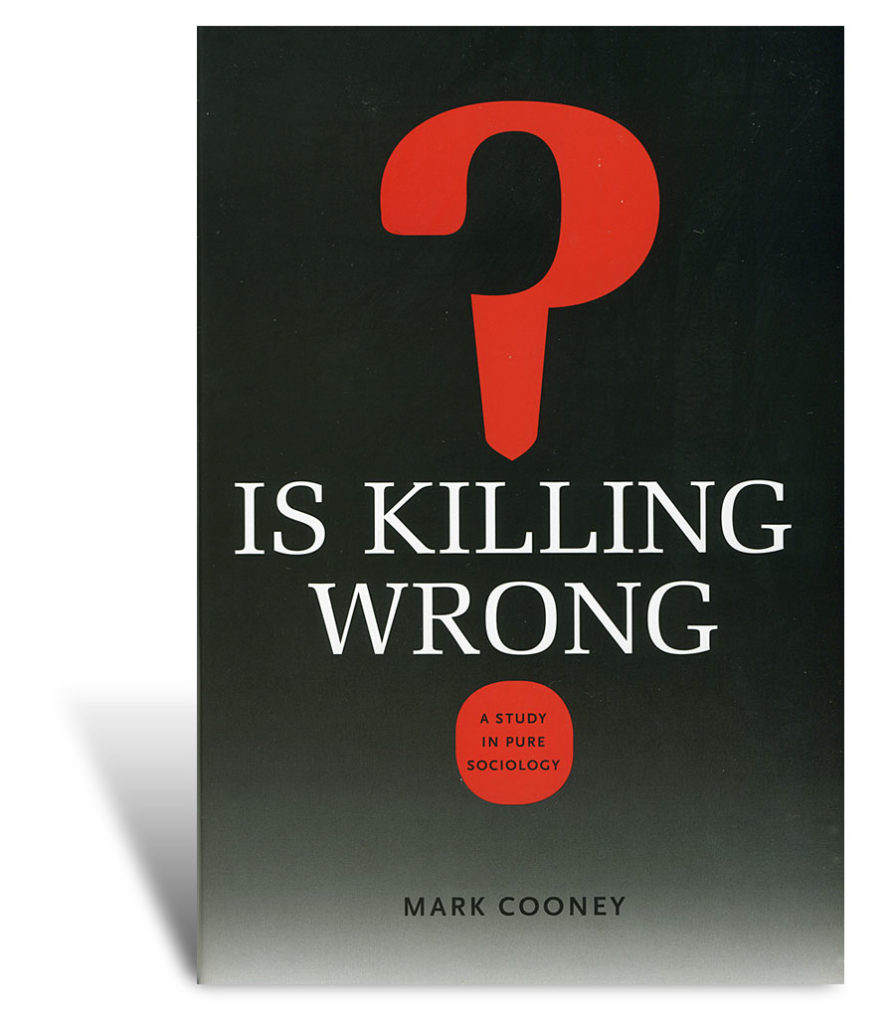“Thou shalt not kill” is arguably the most basic moral and legal principle in any society. Yet while some killers are pilloried and punished, others are absolved and acquitted, and still others are lauded and lionized—Mark Cooney, associate professor of sociology at UGA, explores why this is in his new book, Is Killing Wrong?: A Study in Pure Sociology.
The traditional answer is that how killers are treated depends on the nature of their killing, whether it was aggressive or defensive, intentional or accidental. But those factors cannot explain the enormous variation in the response of legal officials and citizens to real-life homicides. Cooney argues that a radically new style of thought—pure sociology—can.
Is Killing Wrong? provides the most comprehensive assessment of pure sociology yet attempted.
Drawing on data from more than 100 societies, including the modern day U.S., it represents the most thorough account yet of case-level social control, or the response to conduct defined as wrong. In doing so, it demonstrates that the law and morality of homicide are neither universal nor relative but geometrical.
